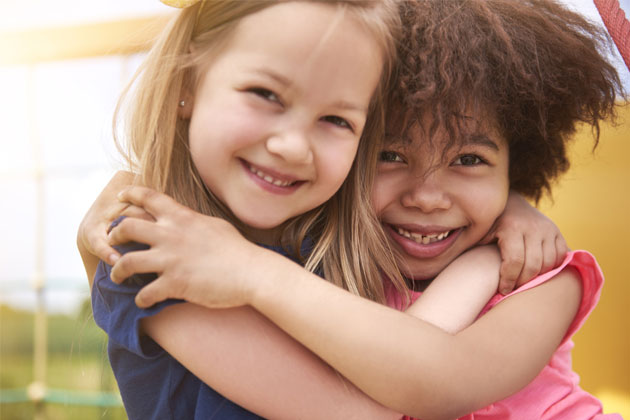Empathy, often described as the ability to understand and share the feelings of another, is not just a soft skill. It’s deeply rooted in our brain’s architecture and plays a pivotal role in trauma-informed, resilience-focused schools. Let’s dive into the fascinating world of empathy and its importance in the classroom.
The Brain Science Behind Empathy
“I feel your pain” is more than just a figure of speech. We can feel the pain of others in a modified form. Brain scans have demonstrated the existence of mechanism inside of the brain that allows individuals who are observers to unconsciously experience activations inside of their brain that mimic the same activations in the brain of the person they are observing. For example, someone watches another person receive an allergy shot in the back of the arm. When the observer watches the patient get poked by the needle on the arm, the same motor and sensory areas of the observer’s brain are activated that are activated in the person receiving the poke – just to a lesser degree. This makes it possible to empathize with another person but not become overwhelmed by their personal distress. Brain cells called mirror neurons are responsible for this phenomenon and the result is empathy. Empathy helps create connections between individuals and fuels the feeling of compassion for another person. Just like the needle example, the same thing happens when individuals observe others’ facial expressions, tone of voice, and body language.
Empathy in Trauma-Informed, Resilience-Focused Schools
Trauma can profoundly impact a child’s ability to learn and socialize. Schools that recognize this and adopt a trauma-informed approach aim to create a safe environment where students feel understood and supported.
Empathy in the classroom is the cornerstone of such environments. When educators approach students with empathy, they:
- Recognize and validate students’ feelings and experiences.
- Create a classroom culture where students feel a sense of connection.
- Foster trust and safety in the classroom.
- Promote resilience by helping students gain awareness of and navigate their emotions.
- Helps balance students as they observe and interact with regulated educators.
The Circle of Courage and Empathy
The Circle of Courage, a model of youth empowerment, identifies four universal growth needs of all children: Belonging, Mastery, Independence, and Generosity. Empathy plays a crucial role in fostering a sense of belonging. When students feel understood and cared for, they’re more likely to engage, participate, and thrive.
Strategies for Building Empathy in the Classroom
1. Model Empathetic Behavior: Children learn by observing. Teachers should demonstrate empathy in their interactions.
2. Storytelling: Reading books or sharing stories that showcase different perspectives can help students understand and appreciate diverse experiences.
3. Role-Playing: This allows students to step into another’s shoes, fostering cognitive empathy.
4. Active Listening Exercises: Teach students to listen without interruption, encouraging them to understand others deeply.
5. Encourage Group Work: Collaborative projects can help students appreciate different viewpoints and work together harmoniously.
6. Discuss Emotions: Create a classroom environment where discussing feelings is encouraged and normalized.
Empathy is not just a moral virtue but a neurological process deeply embedded in our brains. In the realm of education, it’s a powerful tool that can transform classrooms into safe, nurturing, and empowering spaces. By understanding its importance and actively fostering it, we can pave the way for more compassionate and resilient future generations.
References
Jankowiak-Siuda K, Rymarczyk K, Grabowska A. (2011). How we empathize with others: a neurobiological perspective. Medical Sciences Monitor. 17(1), R18-24.
Riess, H. (2017). The science of empathy. Journal of Patient Experiences, 4(2), 74-77.


